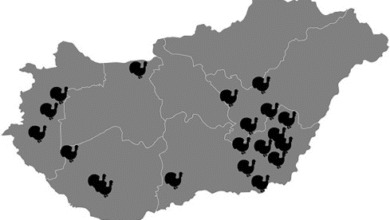
pigeon diseases following as…
Pigeons are majestic creatures and we love working with them. As true pigeon fanciers, we compete in races and attend many events. Our goal is to spread knowledge and experience throughout the pigeon fanciers community. Another one of our goals is to take the best care of our and your pigeons as possible.
For decades we’ve been developing medicine, vaccine and supplement for different purposes: To cure or prevent diseases, to help your pigeons recuperate after training, to stimulate the healing process, to complement training and improve results etc.
However, sometimes you cannot prevent a disease from breaking out in your colony. This can be due to many reasons.The loft might not answer to the right standards, the feed might have been infected or a new pigeon, which was added to the colony, carried a virus.
In this article, we’ll tell you more about the most common pigeon diseases and what you can do to prevent and cure them. We’ll provide as much background information as possible, so make sure to check out the links.
Coccidiosis
coccidiosis is a parasitic diseases which can be fatal to your pigeons. This pigeon disease impacts the digestive system, which makes the pigeons eat less and, if they eat, not digest the feed well, meaning they take up less resources and minerals. The good news is, it’s curable and preventable. We have a variety of product that will help.
MAIN CAUSES: the main cause of cocciodosis is food poisoning. So make sure you always provide good and healthy feed. The infection is easily spread via contact or ingestion of infected feces or tissue. Make sure to quarantaine every pigeon that has cocciodosis.
SYMPTOMS: the first visible symptom is diarrhea, which may be bloody in severe case.
MAIN CURE: Cocci tricho mix is a water soluble powder that treats several diseases. It’s mainly designed to cure cocciodosis and trichomoniasis, but also cures other pigeon diseases.
Trichomoniasis
Trichomoniasis is a parasitic disease also called canker. This pigeon disease is caused by the parasite Trichomoniasis. Scientists think this parasite is an ancient pathogen that infected even dinosaurs long ago.
The parasites are usually found either at the start (mouth, throat) or at the end (…) of the digestive tract. The parasites quickly die once they leave the host. This pigeon disease can be treated with a medicine or a disinfect.
MAIN CAUSES: The main cause is infected drinking water (so refresh the water frequently), or an infected parent feeding a youngling.
SYMPTOMS: sudden death (remove the pigeon a.s.a.p.), not eating, weight loss or a ruffled look.
MAIN CURE: We have a variety of products that battle Trichomoniasis. This is a standard cure for Trichomonisasis. Ronidazole is a more allround cure with supplementary ingredients. It doesn’t just cure Trichomoniasis, it also provides the necessary vitamins and minerals to keep the pigeon strong, healthy.
Worms
Worms are gross, although our feathered friends think they are delicious. However, some worms are reversed on the food chain and they eat pigeons, from the inside! Pigeons are commonly infected by Roundworms, Hairworms, Gapeworms or Tapeworms. Sometimes it’s no problem. Eggs might not hatch or the worms leave the body the natural way.
In some cases, however, the worms are staying. That’s bad, because it greatly impacts the pigeon help! They have trouble performing, their appetite decreases and it may cause diarrhea. What’s bad is that it makes the pigeon more vulnerable to other diseases.
Fortunately, worms can be treated as well. We have developed worm tab that battles all dangerous worms.
MAIN CAUSES: This (annoying) pigeon disease is caused by infected food, infected droppings of other animals and from eating insects.
SYMPTOMS: Diarrhea, worms in dropping, weight loss, decreased performance, unhealthy and weak look.
MAIN CURE: Worm tab is a tablet cure that will remove the aforementioned worms from the pigeons’ body.
Ornithosis
This pigeon disease is different and dangerous. The ‘parrot fever’ can also be caught by humans because it’s zoonotic, so take measures when you find ornithosis in your colony. In fact, in the past people have died from this disease. Ornithose is often causes by Chlamydia. It does not have symptoms of its own, it is a so called hidden or latent infection. However, due to the decrease of the immune system, other latent infections may show up.
Ornithosis also affects the respiratory , making it hard to breathe for the pigeon. It affects the endurance and strength, which results in a bad performance.
Since it’s a bacterial disease, ornithosis can be treated well if diagnosed on time. Our myco orni mix battles the bacteria.
MAIN CAUSES: It can be spread via air, if urine- or feces particles are aerosolized and breathed in by humans or animals. Also beak to beak contact can spread the disease. Any pigeon infected must be quarantined immediately to prevent spreading.
SYMPTOMS: diarrhea, inflammation, fever, nasal dropping, low appetite, weird breathing sounds, shedding and ruffled looks.
MAIN CURE :Myco orni mix is a well designed medicine containing a broad spectrum antibiotics, which has a synergistics effect. It has additional minerals and vitamins to strengthen the pigeon’s body during application.
Mycoplasmosis
Mycoplasmosis is an infection of the bonchia and comes in several plus It is usually a combination of bacteria and viruses, which makes it dangerous. Mycoplasmosis on its own might be a harmless pigeon diseaseFortunately there are some treatments to this pigeon disease. We recommend travi allician plus.
MAIN CAUSES: Infected feed, drinking water, feces and equipment.
SYMPTOMS: Nasal discharges, decreased performance, unwillingness to fly, unusual flying movements, wheezing sound and throat inflammation.
MAIN CURE: Travi allicin plus not only battles Mycoplasmosis. Since Mycoplasmosis decreases the immune system, the pigeon is vulnerable for many additional diseases. That’s why we wanted to develop a product that also protects the pigeon during the healing period. Travi-Allicin-Plus provides this protection against salmonellis, collibacillosis and necrotic entritis .
Salmonellosis
Salmonellosis or paratyphus is a bad bacterial infection. It’s bad because it can be mortal and it’s contagious for humans also. Salmonellosis attacks the intestines of your pigeons, causing serious damage. It impacts the performance, lowers the immune system and decreases the appetite. The problem with salmonellosis is that it can infect different parts of the body. It’s a ‘total’ pigeon disease.
For most humans, treatment is not necessary. For pigeons, however, a treatment is necessary. It’s also wise to provide them a cure to prevent any spreading. Our medicine helps to fight and prevent a salmonellosis infection.
MAIN CAUSES: infected feed, drinking water and feces.
SYMPTOMS: Limping, unusual flying movements, decreased appetite, weight loss, diarrhea.
MAIN CURE: Also for this disease, travi Allican plus is a good option for the aforementioned reasons.
E-coli
E-coli is literally the nightmare of all pigeon fanciers. Especially youngsters are vulnerable to E-coli. For many pigeon fanciers, it’s the worse pigeon disease imaginable.
E.coli is a bacterial infection that greatly reduces the immune system. It functions the same way as AIDS among humans. It makes the pigeon more susceptible to other bacteria and viruses. If another infection occurs, it usually results in death.
In 1976 the Type I was discovered in young pigeons. Type II was discovered in 1992 in Belgium. According to research, E-coli is increasingly resistant to several antibiotics, making it more difficult to treat. This pigeons disease is strong and flexible and from time to time evolves to be more resistant to medications.
Fortunately, it’s curable. We have a few medicine that will suppress and cure e-coli. We must warn you that treatment must be provided as soon as possible. If another infection occurs, it’s usually end of story. Make sure you quarantaine the pigeon and protect it as good as you can.
MAIN CAUSES: infected feed and drinking water. Also, an infection occurs faster when the pigeon has a lot of stress: which may be caused by a change of loft, too many pigeons in one loft, change of diet, intense training etc. The stress reduces the immune system, making the pigeon more susceptible to E-coli.
SYMPTOMS: Reduced immune system, increased rate of ill pigeons.
MAIN CURE: We have several cures for E-coli.

Hexamitiasis
Hexamitiasis is another parasitic pigeon disease. Although, it’s not really hexamitiasis, but spieonucles . It’s most harmful to young pigeons and often causes death.
MAIN CAUSES: infected feed, drinking water and feces.
SYMPTOMS: Watery (yellow) diarrhea, weight loss, dry feathers and unwillingness.
MAIN CURE: Cocci tricho mix is a water soluble powder that treats several diseases. It’s mainly designed to cure cocciodosis and trichomoniasis, but does wonders in battling hexamitiasis also.
Necrotic Enteritis
Necrotic enteritis is mainly caused by clostridial perifringes. It’s a bacteria that can be found literally anywhere. It’s pretty hard to prevent this bacteria from entering the loft, feed, water etc. It usually doesn’t affect pigeons as much as other poultry, but can still be a problematic pigeon disease.
MAIN CAUSES: the bacteria is found even in dust, soil, feed, water, feces etc. It’s therefore hard to prevent infection. It’s easier to provide preventive cures.
SYMPTOMS: Diarrhea, mortality rate increase, depression, ruffled looks.
MAIN CURE: Also for this disease, Travi Allicin plus is a good option for the aforementioned reasons.
Colibacillosis
Collibacillosis is a typical secondary infection , which is caused by the aforementioned illnesses that affect the immune system. Preventive medication for these predisposing viral infections will usually also prevent colibacillosis. However, this is no guarantee.
It can be inhaled (infection via the respiratory tract) or taken in via the feed or water (intestinal infection).
MAIN CAUSE: Infected food, water and feces, although infection can also be caused by inhalation.
SYMPTOMS: Reduced immune system, increased rate of ill pigeons and increased fluid in body cavities (swollen bodyparts).
MAIN CURE: Even though this is not an primary immune disease. This is due to the fact that this secondary pigeon disease works the same as any other immune disease.
Conclusion
We’ve discussed the most common pigeon diseases and provided solutions to these pigeon diseases. Most pigeon diseases can be treated well..
We hope we’ve contributed to your knowledge about pigeon diseases. Now you know what they are, how to diagnose them and how to treat them. Let us know if you have questions about another common pigeon disease and we’ll try to add it to this article…
Common Pigeon Diseases FAQ’s
What is the most common disease in pigeons?
A: Canker (Trichomoniasis) is very common. It causes yellowish growths in the mouth and throat, leading to difficulty eating.
Can pigeons catch respiratory infections?
A: Yes! Paramyxovirus and respiratory infections cause sneezing, breathing trouble, and watery eyes. Good hygiene helps prevent it.
If you have any questions, feel free to ask us anytime. We are always here to provide expert advice and support regarding your pet’s health and care. Your pet’s well-being is our priority. Contact us at professionaldvm129@email.com — we’re happy to help!








